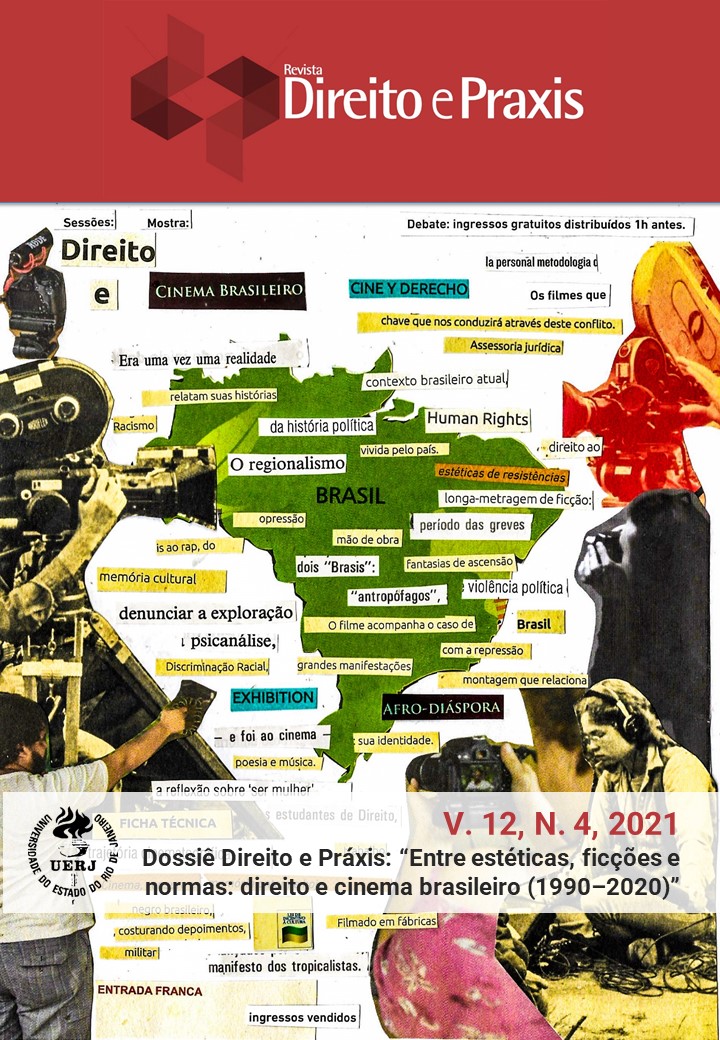“Quem nasce em Bacurau é o quê?”: do perspectivismo à autoafirmação em Bacurau / “Who is born in Bacurau is what?”: from the perspectivism to the self-affirmation in Bacurau
Keywords:
Perspectivismo, Autoafirmação, Bacurau / Perspectivism, Self-affirmation, Bacurau.Abstract
DOI:10.1590/2179-8966/2021/62935
Resumo
Este artigo explora o filme Bacurau sob dois aspectos da filosofia de Nietzsche: o perspectivismo e a autoafirmação. Por um lado, a quebra de expectativas que ocorre durante o filme permite interpretar a realidade a partir de diferentes perspectivas. Por outro lado, essas perspectivas podem também ser entendidas como a autoafirmação de sujeitos comumente negados sob diferentes prismas. Assim, em primeiro lugar, faço uma relação entre perspectivismo e interpretação que desemboca numa relação entre perspectivismo e liberdade. Em seguida, a partir de uma análise de três cenas, centradas nos personagens do cangaceiro, dos velhos e da criança, sugiro que perspectivismo, interpretação e liberdade convergem em Bacurau, concluindo que padrões de pensamento recalcitrantes, sobretudo na forma de perspectivas estigmatizantes, podem ser interrompidos pela apresentação de perspectivas autoafirmadoras. A afirmação de si e da vida, critério fundamental da existência interpretativa, é feita por qualquer ser humano, e a apresentação das perspectivas autoafirmadoras das diversas manifestações humanas, inclusive de polos tradicionalmente estigmatizados, pode implicar a substituição de perspectivas estigmatizantes.
Palavras-chave: Perspectivismo; Autoafirmação; Bacurau.
Abstract
This paper explores the film Bacurau under two aspects of Nietzsche's philosophy: perspectivism and self-affirmation. On the one hand, the break in expectations that takes place during the film allows us to interpret reality from different perspectives. On the other hand, these perspectives can also be understood as the self-affirmation of subjects, commonly denied under different prisms. Thus, firstly, I make a relationship between perspectivism and interpretation that leads to a relationship between perspectivism and freedom. Then, based on an analysis of three scenes, centered on the characters of the cangaceiro, the elderly, and the child, I suggest that perspectivism, interpretation and freedom converge in Bacurau, concluding that recalcitrant patterns of thought, especially in the form of stigmatizing perspectives, can be interrupted by the presentation of self-affirming perspectives. The affirmation of the self and of the life, the fundamental criterion of interpretive existence, is made by any human being, and the presentation of self-affirming perspectives of the various human manifestations can imply the substitution of stigmatizing perspectives.
Keywords: Perspectivism; Self-affirmation; Bacurau.
Downloads
Published
How to Cite
Issue
Section
License
The authors the sole responsibility for their texts.
It is allowed the total or partial reproduction of the articles of the Journal Law and Praxis, if the author is mentioned.
This work is licensed under a Creative Commons Attribution-Noncommercial-Share Alike 4.0 Unported License.
This license allows you to copy and redistribute the material in any medium or format for any purpose, even commercial, provided the original authorship is cited.
This work is licensed under a Creative Commons Attribution 4.0 International License.



